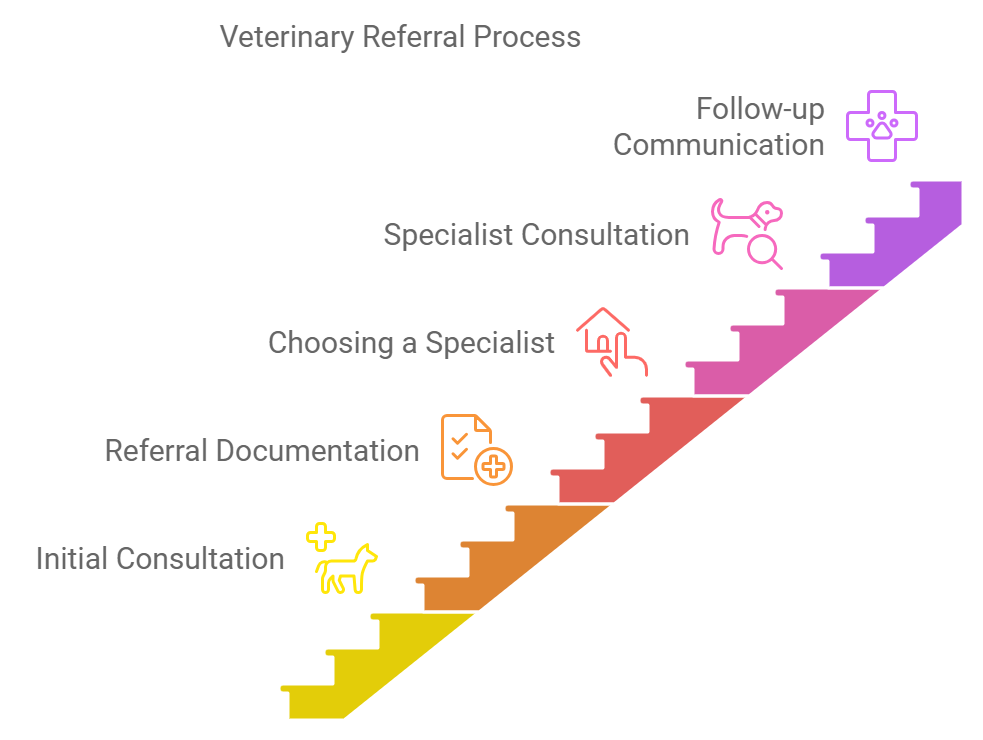Importance of Referral
Early referral for animal physiotherapy is crucial in ensuring the best possible outcomes for your furry friend. By seeking treatment at the earliest signs of discomfort or injury, you can prevent further complications and promote faster healing.

Step-by-step Process for Veterinary Referral: Ensuring Clarity and Ease for Referring Vets

Initial Consultation with Primary Veterinarian
Assessment: The primary vet assesses the dog's condition and determines whether specialized care is needed (e.g., complex surgeries, advanced diagnostics, or treatment).
Discussion with Owner: The vet explains the condition, potential need for referral, and why specialized expertise is required
Referral Documentation
Referral Letter/Report: The primary vet prepares a detailed report, including the dog's medical history, diagnostic results, and treatments provided.
Supporting Documents: Lab results, imaging (X-rays, ultrasounds), and any relevant test reports are included for the specialist’s review.
Choosing a Specialist
Finding the Right Specialist: Based on the dog's condition, the vet selects a specialist (e.g., cardiologist, neurologist) with experience in treating the specific issue.
Scheduling an Appointment: The vet or the pet owner contacts the referral practice to arrange an appointment and provide all necessary documentation in advance.
Specialist Consultation and Feedback
Consultation & Treatment: The specialist evaluates the dog and provides diagnosis or treatment. This may include advanced diagnostics, surgery, or therapy.
Follow-up Communication: The specialist shares their findings and treatment plan with both the owner and primary veterinarian for continuity of care.
Download Referral Forms for Vets
Make it easy for vets to refer their clients